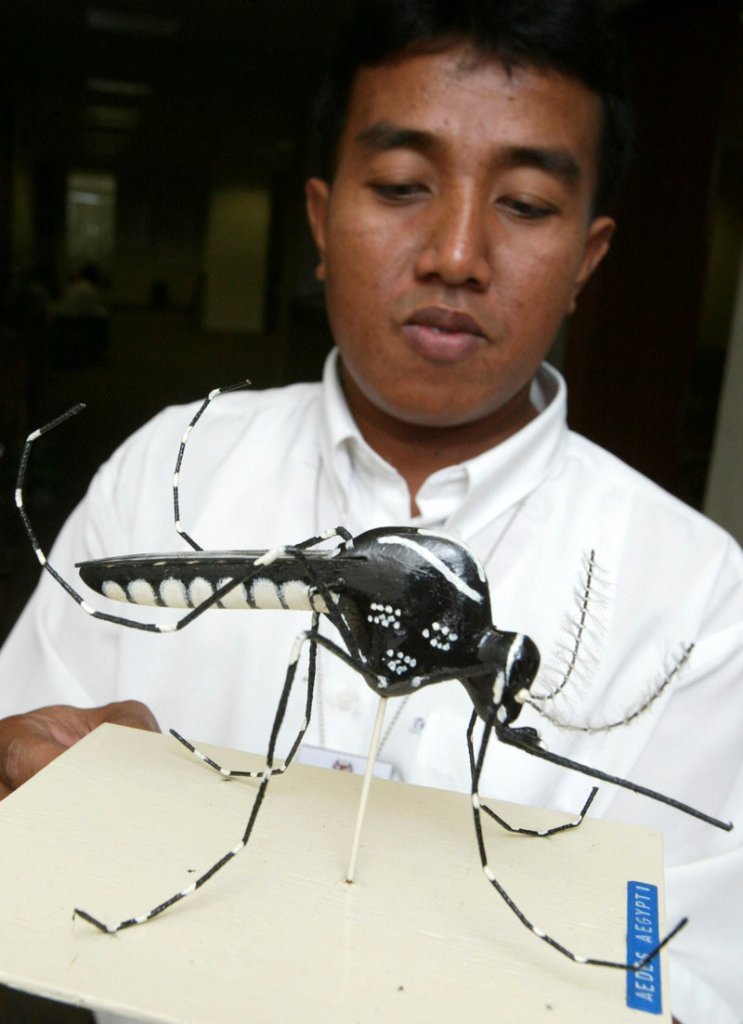KUALA LUMPUR, Malaysia – Malaysia released about 6,000 genetically modified mosquitoes into a forest in the first experiment of its kind in Asia aimed at curbing dengue fever, officials said Wednesday.
The field test is meant to pave the way for the use of genetically engineered Aedes aegypti male mosquitoes to mate with females and produce no offspring or ones with shorter lives, thus curtailing the mosquito population. Only female Aedes aegypti mosquitoes spread dengue fever, which killed 134 people in Malaysia last year.
A similar trial in the Cayman Islands last year — the first time genetically modified mosquitoes have been set loose in the wild after years of laboratory experiments and hypothetical calculations — resulted in a dramatic drop in the mosquito population in a small area studied by researchers.
The plan has sparked criticism by some Malaysian environmentalists, who fear it might have unforeseen consequences, such as the inadvertent creation of uncontrollable mutated mosquitoes. Critics also say such plans could leave a vacuum in the ecosystem that is then filled by another insect species, potentially introducing new diseases.
Government authorities have tried to allay the concerns by saying they are conducting small-scale research and will not rush into any widespread release of mosquitoes. The Malaysian government-run Institute for Medical Research said it released about 6,000 sterile male lab mosquitoes in an uninhabited forest area in eastern Malaysia on Dec. 21. Another 6,000 wild male Aedes aegypti mosquitoes were also placed in the area for scientific comparison, it said in a written statement.
The institute provided few details of the experiment, but said it was “successfully” concluded Jan. 5 and that all the mosquitoes were killed with insecticide. It said it is not planning to release any more mosquitoes until it analyzes the results.
Duane Gubler, a professor specializing in infectious diseases at Singapore’s Duke-NUS Graduate Medical School who was not involved with the research, said the plan is likely to be effective in fighting dengue if it is combined with other biological control methods.
“We need new tools. Nothing we’ve done in the past 40 years has had an impact” on dengue, Gubler told the AP.
Copy the Story LinkSend questions/comments to the editors.



Success. Please wait for the page to reload. If the page does not reload within 5 seconds, please refresh the page.
Enter your email and password to access comments.
Hi, to comment on stories you must . This profile is in addition to your subscription and website login.
Already have a commenting profile? .
Invalid username/password.
Please check your email to confirm and complete your registration.
Only subscribers are eligible to post comments. Please subscribe or login first for digital access. Here’s why.
Use the form below to reset your password. When you've submitted your account email, we will send an email with a reset code.